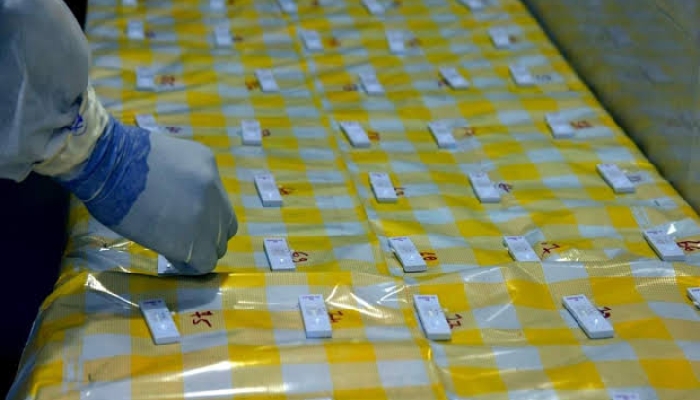Kodagu, Aug 21: As Karnataka battles rain and flood fury, people from all across the country have been extending their help in the relief operations by sending food items and other essentials. However, the state government has urged people not to send any more relief materials but instead extend monetary assistance.
Kodagu district-in-charge Minister SR Mahesh has requested people to not to send more relief food material and instead transfer money to the Chief Minister's fund. He said that there is already enough food material and there is no space left to store more retail stuff.
Floods in Karnataka have claimed at least 12 lives so far and hundreds have been rendered homeless. Rescue and relief operations have intensified in rain-ravaged Kodagu. Karnataka Chief Minister HD Kumaraswamy had on Monday said that the situation was "under control" and assured the people battered by floods and landslips of a "new life" with fair rehabilitation. The state government also announced Rs 2.2 crore interim relief for 5,800 people rescued from Kodagu.
"The government has initiated steps to pay interim relief of Rs 3,800 per family to 5,800 distressed people in the relief camps," Kumaraswamy said.
A total of 5,618 people have been sheltered at 41 relief camps in Kodagu and 340 in three camps in Dakshina Kannada district, which has also received heavy rains.
Cut off by landslides and damaged roads, the coffee-growing Kodagu district, located in the Western Ghats, has been the worst affected in the state due to southwest monsoon since June first week.
As per government`s estimates, 845 houses, 123 km of roads, 58 bridges, 278 state-owned buildings and 3,800 electric poles have been destroyed. The district administration has been directed to distribute new uniform and text books to the students.
Around 1,725 personnel from the Indian Army, Navy, Indian Air Force (IAF), National Disaster Response Force (NDRF), State Disaster Response Force (SDRF), state police, National Cadet Corps (NCC), Home Guards and district officials were involved in the relief operations.
On a request from the state government, the IAF training command in Bengaluru rushed on August 17 one Mi-17 helicopter for rescue and relief operations.






Comments
Experienced from Kerala flood survival. They managed well in that. After flood immediatly they cant go to home. home may be destroyed. In relief camps, people need medicines, dress and food items
Relief funds are must but medicines and basic foods are essential to survive in camps during flood.
Dear CM, first survival then relief
Only money wont work for relief. If people staying in relief camps, they need food, dress and medicines not money. Money they need after survival
Add new comment